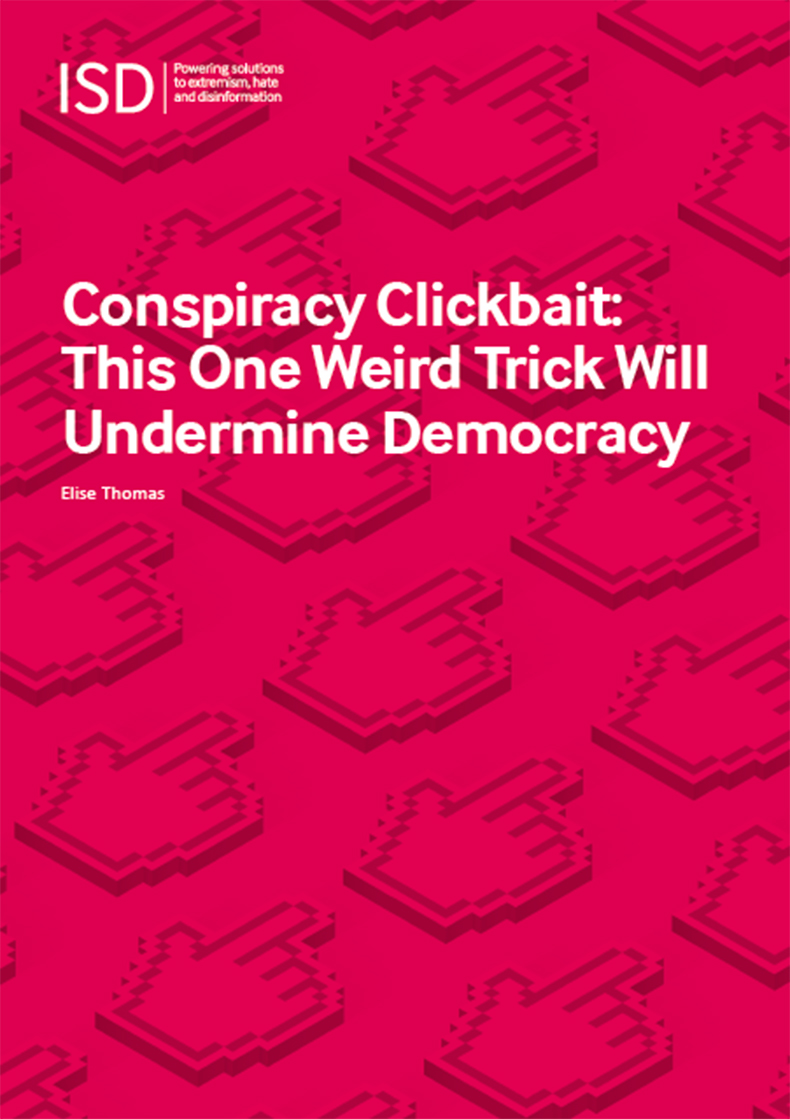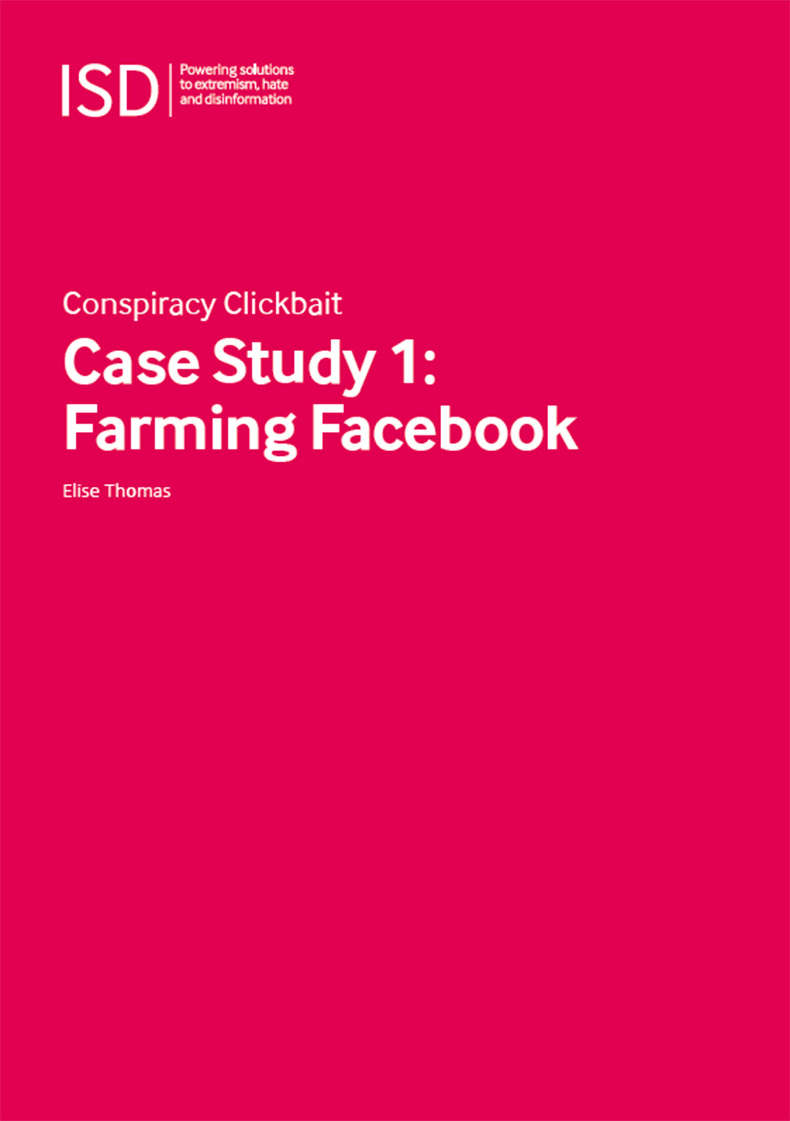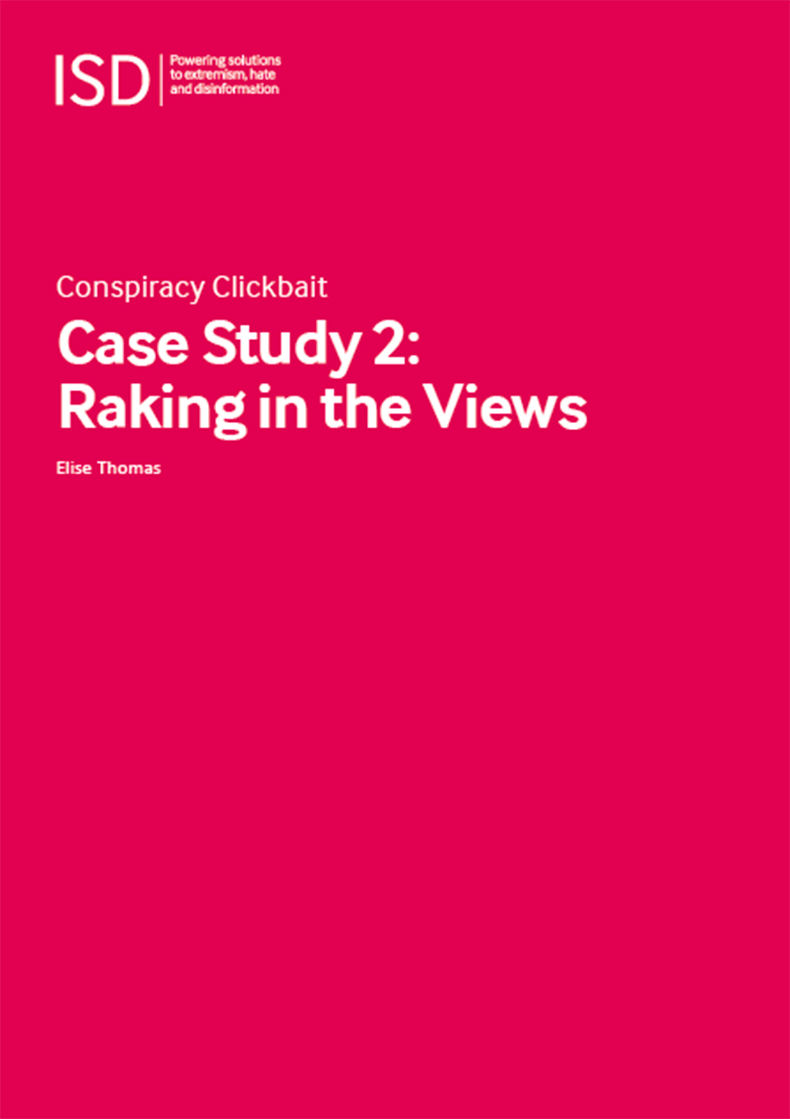Conspiracy Clickbait: This One Weird Trick Will Undermine Democracy
Historically, policymakers and investigators have tended to focus on state-linked disinformation operations and to largely overlook the role of commercially motivated networks. However, the rise of a global industry producing conspiracy clickbait for profit is likely to have significant implications, including supercharging existing problems of disinformation and polarization.
_________________________________________________________________________________
This report series explores three case studies of how networks linked to individuals in Vietnam are using QAnon conspiracy theories and US political disinformation to generate revenue. These case studies illustrate that although the motive may be commercial, the effect of such networks is to deepen political division and amplify conspiracy theories and disinformation.
While each individual network may only have a small impact, the cumulative impact of many such networks around the world may be profound. This growing industry is disproportionately targeted at the US, and therefore should be of particular concern for US policymakers and practitioners.
_________________________________________________________________________________
 Conspiracy Clickbait: This One Weird Trick Will Undermine Democracy
Conspiracy Clickbait: This One Weird Trick Will Undermine Democracy
The rise of a global cottage industry producing conspiracy theory content for profit is likely to have significant implications, including supercharging existing problems of disinformation and polarization. This report explores three case studies of networks linked to Vietnam promoting QAnon to US audiences for profit, and discusses the broader implications of the growing conspiracy clickbait industry.
 Case Study 1: Farming Facebook
Case Study 1: Farming Facebook
This case study focuses on how a network of Facebook pages and groups linked to individuals in Vietnam appears to be using QAnon content in order to build up audiences of authentic US users. A lucrative black market exists for secondhand Facebook pages and groups, and it seems likely that the ultimate goal of the network in this case study is to farm these digital assets and sell them on. The case study illustrates one business model by which commercially-motivated networks are amplifying conspiracy theories and disinformation for profit.
 Case Study 2: Raking in the Views
Case Study 2: Raking in the Views
This case study investigates a network of YouTube and Telegram channels using QAnon content to monetize via YouTube ads and sell merchandise with QAnon, pro-Trump and anti-vaccine slogans. This network appears likely to be linked to operators in Vietnam. The case study demonstrates the way in which commercial motivations are contributing to the spread and amplification of conspiracy theories and disinformation targeting US audiences.
 Case Study 3: The Art of the (Affiliate Marketing) Deal
Case Study 3: The Art of the (Affiliate Marketing) Deal
This case study analyzes a commercial operation linked to individuals in Vietnam which uses QAnon and divisive US political content to generate revenue via digital advertising, affiliate product sales and soliciting donations. This case study helps to demonstrate the flexibility and opportunism of commercially motivated actors in trialing multiple means of monetizing conspiracy theories and disinformation.



